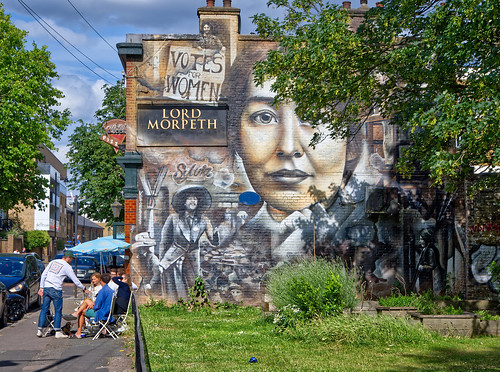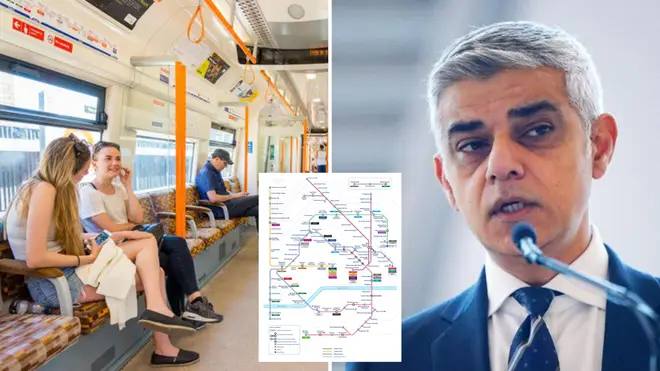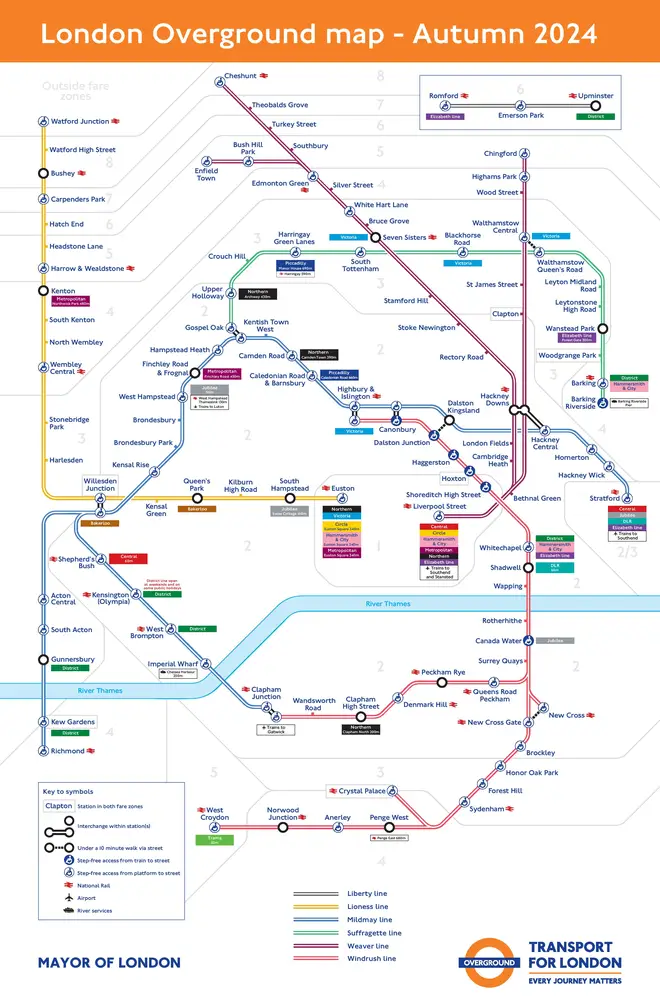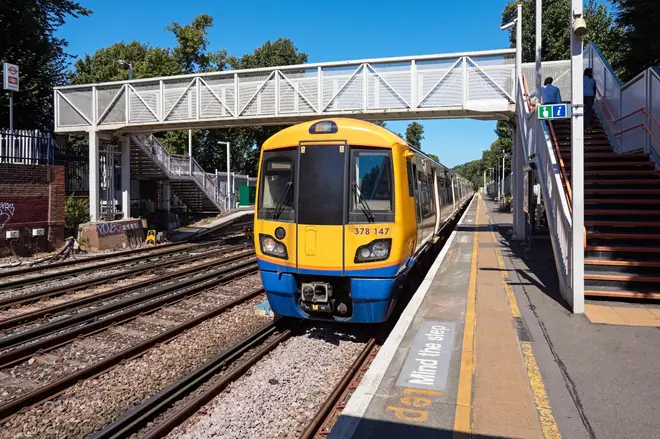The Lioness Line! Windrush and Suffragette among new names for London Overground lines after £6 million rebrand
Suffragette #Suffragette

15 February 2024, 09:58 | Updated: 15 February 2024, 10:26

The new names of the six London Overground lines have been revealed.
Each of the lines will be renamed and given different colours, after previously all being referred to as the Overground, and being coloured in orange.
The rebrand will take place over a week in the autumn and is set to cost £6.3 million. It will come out of Sadiq Khan’s Greater London Authority budget.
Transport for London (TfL) said that the rebranding would reduce confusion, increase ridership, and celebrate “London’s diverse communities and histories”.
The names were not voted on by the general public, but “through engagement with customers, stakeholders, historians, industry experts and local communities”.
Some were unhappy with the changes, including Mr Khan’s Conservative opponent Susan Hall, who said it represented “virtue signalling”.
Read more: Sadiq Khan freezes London Tube and bus fares until 2025 in boost for commuters
Read more: Tube driver who chanted ‘free, free Palestine’ suspended as TfL launches investigation

They are:

The Overground network was created in 2007 when TfL took control of four suburban railway lines. But it has grown significantly since then, making it confusing for some.
The majority of the rebrand money will go towards updating customer information, including redesigning and redisplaying maps across all Tube and London Overground stations, and issuing new versions in print and online. Public address announcements will be re-recorded and around 6,000 station direction signs will be updated.
Announcing the change, Mr Khan said: “This is a hugely exciting moment, transforming how we think about London’s transport network.
The London mayor said: “Giving each of the Overground lines distinct colours and identities will make it simpler and easier for passengers to get around. In re-imagining London’s tube map, we are also honouring and celebrating different parts of London’s unique local history and culture.
“The new names and colours have been chosen through engagement with passengers, historians and local communities, reflecting the heritage and diversity of our amazing city.”
Ms Hall said: “In typical Sadiq Khan fashion, this pointless, costly, virtue signalling project is costing Londoners £6.3m. Instead of fixing the central line, getting a grip on crime on the tube and on our streets, he’s focusing on his own PR.
“We’ve had enough of this, it’s time for a change.”
Others also hit out at the changes, with some suggesting that the money could have been spent on improving services.
One person said on Twitter: “I thought this was a joke! It’s not.
Another asked: “Why don’t you fix the Central line instead of naming the Overground line as if that were a problem?
A third said: “I really did have to double check it wasn’t 1st of April today”.
But John Bull, editor of transport website London Reconnections, said giving the lines names and colours was “an overdue change”.
He told the PA news agency: “One of the real benefits that the Overground has brought is the ability to drive traffic that isn’t local to interesting places in Zone 2, Zone 3 and beyond.
“But if it’s not a familiar journey you can’t just say ‘I’m going to get on the orange line’. You have to know how they interconnect.”
Mr Bull predicted that “people will grumble and moan about the names” but that has happened for “every single line that has been given a name over the years”.
He added: “Frankly, it’s nice to have some stuff that represents things that have changed the lives of Londoners, among the references to queens that have tended to accrue up until now.”
The most recent major naming of a rail line in London was the Elizabeth line after Queen Elizabeth II, which opened in May 2022.